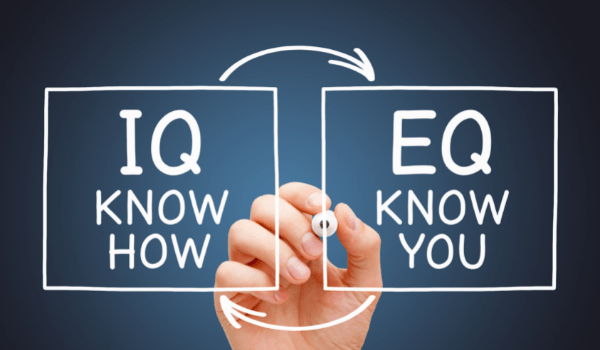A Coach is a person whose role is to shine a light on something that is otherwise not visible to the client’s eyes. And this is a key ask from the HR, especially in these uncertain and fearful times of the COVID-19 pandemic.
Stress has always been an inescapable part of human competitive endeavours. Without an exception in corporates, mental and emotional strength is the yin to the yang of physical prowess.
These days, the HR not only have to operate on their usual clocking and explicit KRAs, but also have to act as demi-god aka coaches to their people. This is needed to ensure that the organisation —in other words, its workforce — has a healthy body, peaceful mind and centred soul.
Motivational talks, stand-up meets or wearing a counsellor’s hat cannot make people accept responsibility or deal with stress. However, if the HR wears the coach’s hat, they will be able to help people make peace with their inner demons, tap into their inner potential and sense their stress triggers to come up with clear solutions.
While work has become helter-skelter and work–life balance has gone for a toss, it is the HR that handles maximum distress calls from its people – some asked and some unasked.
Any victim frame at work can jeopardise the temperature of this ‘new normal’ era organisation, and HR cannot simply ignore the lack of ‘toughness’, ‘weakness’ and ‘choking’.
Much has discussed about what HR has to do to keep the organisation in high spirits. Now the million dollar question is, ‘How can one do it’?
The answer is, by practising emotional intelligence (EI) at work, with oneself and with others.
Emotional Intelligence is the ability of a person to know one’s own emotions in the moment, be able to regulate it and also be aware of the other person’s emotions in the moment and be able to manage that too. While one practices EI, it must be known that it is an individual perspective first, that behaves as per the air-borne rule, ‘Wear your own masks first before helping others’. Once one’s mask is fixed, that is, self-awareness has been raised, then one can definitely help others with one’s social awareness.
Each emotion carries a message in itself. For instance, ‘anger’ tells the bearers that some of their values are violated in the context. Disgust draw the bearers’ attention to the fact that there has been a big compromise with what they believe to be of significance, such as hygiene at the workplace.
If HR personnel can work on their personal competencies to recognise emotions in themselves and accept the same to regulate them, then they certainly qualify as being centred, open, authentic and honest catalysts (coach as catalyst) to help others in the organisation to see their real issues.
Such an HR can partner with the employees to know what exactly they are looking forward to and then help them steer their thoughts, feelings and beliefs in the direction of change so that the employees achieve satisfaction.
Satisfied employees tend to be happy, since happiness is a state of mind in which they are more open to being self-aware, and receptive to being socially aware.
Therefore, listening to emotions in and out is a great competence that the HR must have to not only be able to lead themselves but also groom others as leaders.
This path pushes HR to guide others beyond perceived obstacles and let them discover what they really need and want, which often is not the initial desire they voiced.
To conclude, emotions speak a lot. Therefore, it is important to be aware of an emotion when it is emerging; be in the know of what it is and also deal with it, for oneself and others. Only then can meaningful, consistent and long-lasting results be achieved that impact other aspects of people’s lives in a positive manner.
Ready to develop coaching skills to empower your employees at work? Have a look at ICF’s roadmap to help you on chose the right path for you
If you need support on your organisation’s and/or leader’s coaching journey, do contact us at ICF and our team of volunteers in India will be happy to help.
The International Coaching Federation (ICF) is the world’s largest organisation leading the global advancement of the coaching profession and fostering coaching’s role as an integral part of a thriving society. Founded in 1995, its 40,000-plus members located in more than 145 countries and territories work toward common goals of enhancing awareness of coaching and upholding the integrity of the profession through lifelong learning and maintaining the highest ethical standards.
Through the work of its six unique family organisations, ICF empowers professional coaches, coaching clients, organizations, communities and the world through coaching.
In India, ICF is represented by six vibrant chapters, all led by volunteers — ICF Bengaluru, ICF Chennai, ICF Delhi NCR, ICF Mumbai, ICF Pune and ICF Hyderabad.
 The author, Anju Chawla is an internationally certified Emotional Intelligence Coach and an ICF PCC certified coach, with almost two decades of experience. She is the author of the book The Emotionally Intelligent Coach and works closely with high-potential leaders. She helps people identify their blind spots, which hold them back from creating meaningful relations with work teams. Recognised as one amongst the top 10 women in life coaching by Women Entrepreneur India in 2020, she conducts global workshops to impart training in EI and well-being.
The author, Anju Chawla is an internationally certified Emotional Intelligence Coach and an ICF PCC certified coach, with almost two decades of experience. She is the author of the book The Emotionally Intelligent Coach and works closely with high-potential leaders. She helps people identify their blind spots, which hold them back from creating meaningful relations with work teams. Recognised as one amongst the top 10 women in life coaching by Women Entrepreneur India in 2020, she conducts global workshops to impart training in EI and well-being.




1 Comment
Well articulated. Truly the need of the hour is mental equilibrium that can be achieved through enhancing emotional quotient through effective channelization of EI.